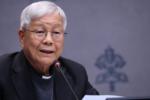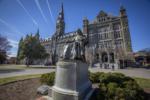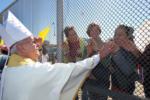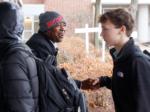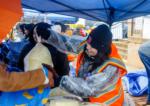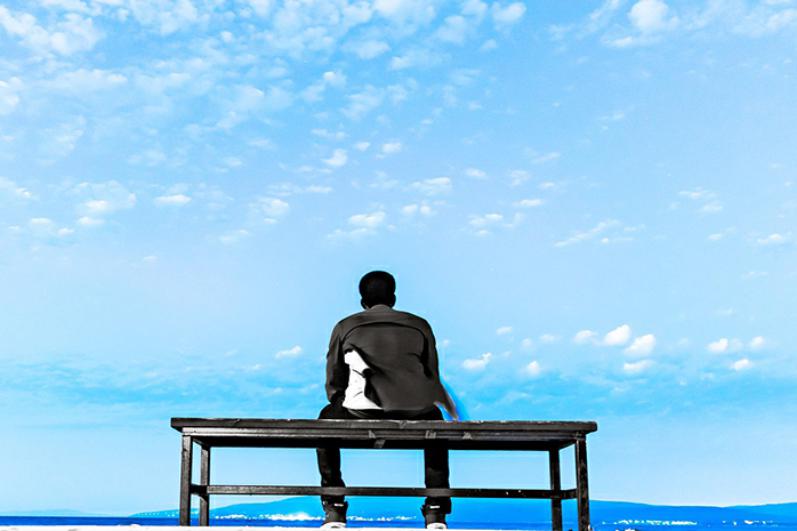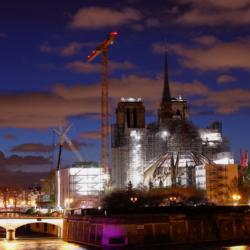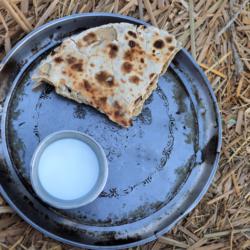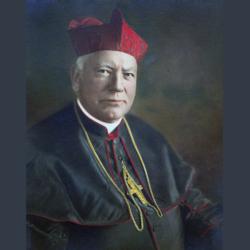Strangers and sojourners: Reflecting on another move and the search for reality
I began the New Year with another move. My wife, Anne, and I celebrated our 20th wedding anniversary this past year. During this time, we have now moved 13 times for studies, work, and health issues. We hope this move will be different. Now that I am working remotely as the director of content for Exodus, we were able to prioritize our family life over other concerns, moving to nine acres near friends in rural North Carolina.
Anne and I have always felt a call to live differently. Even under a myriad of blessings, we, along with so many of our friends, have felt that something is just not quite right with our culture. Oversaturation of technology, isolation without genuine community, families pulled in too many directions -- all of these things weighed heavily upon us. We wondered if we could simply get back to living a more normal human life -- attuned to the natural rhythms of nature, putting family before work and other activities, and more committed to community.
Stability, that great monastic value, has always eluded me, which does not speak well for me as a Benedictine oblate. Even choosing where to live, with some newly found mobility, has something peculiarly modern about it. On the other hand, instability has its own lessons, because we are "strangers and sojourners on the earth" (Hebrews 11:13). This world is not our home, and we should not seek to become too comfortable. We must long for our true home in the Father and maintain the spirit of pilgrims, passing through this world as penitents.
There has always been a tension in the Church found in the age-old saying that we live in the world but not of it. No one put it better in the early Christian centuries than the disciple who wrote a letter to Diognetus:
"Inhabiting Greek as well as barbarian cities, according as the lot of each of them has determined, and following the customs of the natives in respect to clothing, food, and the rest of their ordinary conduct, they display to us their wonderful and confessedly striking method of life. They dwell in their own countries, but simply as sojourners. As citizens, they share in all things with others, and yet endure all things as if foreigners. Every foreign land is to them as their native country, and every land of their birth as a land of strangers. They marry, as do all; they beget children; but they do not destroy their offspring. They have a common table, but not a common bed. They are in the flesh, but they do not live after the flesh. They pass their days on earth, but they are citizens of heaven."
In every century, Christians must struggle with this tension of being in the flesh but not living according to it. Our current century, however, does present unique challenges. Identity has never been so fluid, life so unmoored. Never have so many distractions and temptations been so close at hand. Freedom seemingly has put forward every possibility, now technologically enabled. The flesh reigns supreme but there is something so unreal about its virtual rule.
Grace builds upon nature. As we struggle to share and to live the faith, we must return to reality, maintaining a healthy soil for the Word to penetrate our lives for his honor and glory. Our culture lacks health of body, mind, and soul, which undoubtedly impairs our ability to live a holy life. Our faith must become embodied, because the Word became flesh and continues to dwell among us. To take root, the faith must be shared and lived in an embodied way, rooted in daily practices and relationships. Seedlings require tender care, both to nourish and remove the weeds that choke them out.
What we are doing as Christians in the world right now is not working. To make God preeminent in our lives will require sacrifice. We have to be willing to make changes, to break with the ways of the world, even when painful. That has been the biggest lesson of my last move. One year of living in transition while scouting out the right location and preparing it. Leaving behind so many great friendships and much work in the mission field. And for what? To make a new beginning, the search for a life that would be centered on faith and community rather than trying to fit them into everything else.
To make a change, to follow the Lord's will, to be a saint, we need courage. We will never achieve true stability here, but we should use our gifts as an investment in what is most important and will endure. As pilgrims, the tension will always remain, but we must seek the proper balance, using this world as our path to our true home.




